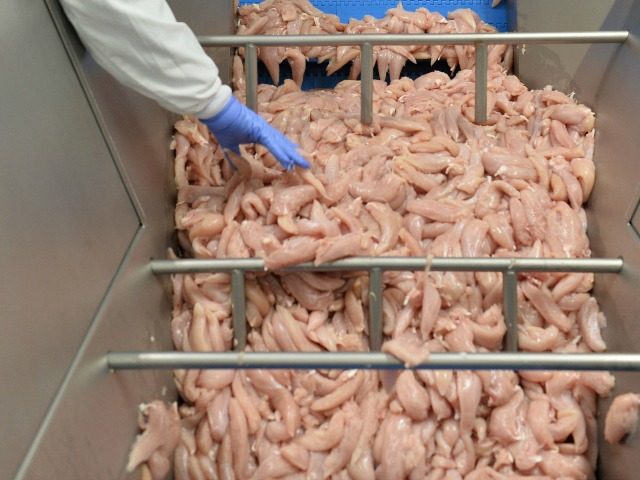Bay Area food tech startup Memphis Meats offered samples of their “clean meat” to adventurous taste-testers in San Francisco this Tuesday.
The chicken strips are grown directly from self-reproducing chicken cells in a laboratory vat, but those who tried it said that it was nearly indistinguishable from the real thing. That’s good news for the meat industry, as the cost of meeting our country’s ever-increasing demand continues to rise.
Companies like Tyson and Hormel have taken note, with the former having formed a venture capital fund in December for investment into this new frontier of meat mass production.
With the average U.S. citizen consuming over 90 lbs. of chicken last year alone, the demand for a more effective means of feeding all of those mouths has never been greater. About 61 billion chickens are being raised around the world for their meat, and the numbers continue to skyrocket.
The development of animal-less meat products is also good news for organizations like PETA, whose president Ingrid Newkirk said that they are “very much in favor of anything that reduces or eliminates the slaughterhouse.” PETA has contributed funds to early research in what many hope will be a way to reduce or eliminate the mistreatment of livestock.
While Memphis Meats believes they will have a commercially viable product by 2021, it currently costs about $9,000 to produce a single pound of chicken, versus the roughly $3 per pound average on the real deal. And while that might seem like a long way off, it cost the company more than twice that to produce a single meatball a year ago.
Perhaps we won’t be gathered around a hearty Thanksgiving can of Pseudo-Turkey anytime soon, but we are closer to turning that proverbial corner than you might think.
Follow Nate Church @Get2Church on Twitter for the latest news in gaming and technology, and snarky opinions on both.

COMMENTS
Please let us know if you're having issues with commenting.